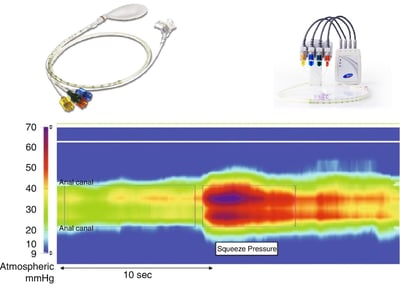 What distinguishes dependable anorectal manometry equipment makers from the rest of the pack? In this review, we'll cover some market leaders to help you decide which supplier might be the ideal partner.
What distinguishes dependable anorectal manometry equipment makers from the rest of the pack? In this review, we'll cover some market leaders to help you decide which supplier might be the ideal partner.
Why is getting to know the options so important? For starters, selecting the right anorectal manometry equipment for a practice isn't always straightforward.
Finding a manufacturer that makes sound catheters, equipment, and software is just the start. Depending on how you run your business or department, you might gain just as much benefit from looking for a supplier that provides the full package, including ongoing support, on-demand assistance, and training. Here's what we were able to unearth about a few key players.
Laborie
Laborie manufactures and sells diagnostic and therapeutic products to clinicians and hospitals in 110 countries while operating from its US headquarters in New Hampshire. It was originally founded in 1967 by Ray Laborie, an early entrant into the urodynamics field. In recent years, Laborie has been bought and sold by private equity company Audax Private Equity. Today, the company is privately owned by a division of Swedish-based Investor AB, and it has six manufacturing and distribution centers with over 800 employees.
|
Would you like to offer anorectal manometry within your practice or department, without having to buy equipment and figure out all the steps required to deploy it. If so, then consider using BHN. BHN provide turn-key anorectal manometry testing that includes the trained staff, equipment, and supplies in a bundled package. This makes anorectal manometry simple and profitable for your practice or department. |
Laborie makes a few different types of motility testing equipment. On top of the typical wheeled-cart high-resolution anorectal manometry (HRAM) designs most clinicians are familiar with, this manufacturer builds self-contained, portable anorectal manometry systems. Laborie also fabricates a range of disposable supplies, including water-perfused, air-charged, and solid-state catheters, endoscopic tattooing equipment, and endoscopic injection needles.
Medspira
Medspira promotes itself as a nimbler alternative to its competitors thanks to its smaller size. Compared to some of the other companies on this list, Medspira is relatively young, having been founded in 2009 through the acquisition of numerous technologies and product lines originally developed by the Mayo Clinic. Today, it works with registered manufacturers to develop and build a range of products, but it's unclear whether it operates any of its own fabrication centers.
As a less-established manufacturer, Medspira's anorectal manometry offerings focus on a single portable device: the mCompass series. It also supplies multichannel disposable catheters, syringes, extension tubing, and flow control hardware.
Alacer Biomédica
Alacer Biomédica provides equipment, training, and support services for several diagnostic techniques, including HRAM. This Brazilian manufacturer got its start in 2000, and today it seems to fill a sort of mid-market role within its sector.
Alacer Biomédica isn't as large as some of its competitors – at the time of this writing, it had a relatively modest 1,000 devices or so installed and in operation – but it's still worth considering. The company's HRM equipment includes features like high channel counts, patient-friendly report generation, and cleaning accessories. It also sells easy-connect probes in multiple versions, including single-connector designs for injecting air, water, sanitizers, and enzymatic detergents into multiple channels simultaneously.
Medtronic
Medtronic is a huge name in medical technology and solutions. The company's products and services cover everything from cardiac care, diabetes, and musculoskeletal conditions to urology and urodynamics. Established in 1949 as a medical equipment repair shop, Medtronic has since grown into a multinational company with more than 90,000 employees worldwide, and its products and therapies are available in more than 150 countries.
Medtronic's HRAM offerings include catheters, probes, and multiple cart-mounted diagnostic systems. The firm also creates acquisition and analysis software geared to work with its ManoScan product line, which comes in multiple hardware module variants that clinicians can use to outfit custom lab setups. ManoScan devices seem to be commonly resold by other distributors, perhaps, in part, due to their widespread use and popularity.
Final Thoughts
The equipment makers on this list all have their pros and cons. For instance, going with an older company just because it's more established doesn't necessarily mean you'll get better support services –even if their product lines are more extensive. On the other hand, smaller suppliers might not be as well equipped to provide the assistance and educational resources their larger counterparts offer.
As we mentioned at the start, administrators should be looking for the whole package, whatever that means for their practices. If you want your investments in capital equipment and disposables to go the distance, you need training and support to ensure they remain usable and cost-effective.


